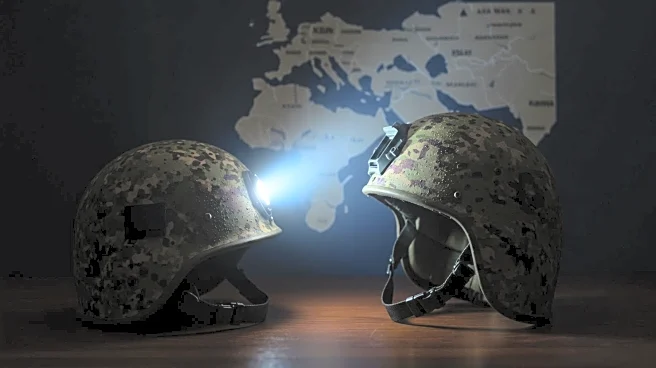What is the story about?
What's Happening?
The Knesset's Foreign Affairs and Defense Committee has approved the extension of emergency IDF reserve call-up orders, known as Tzav 8, in preparation for a planned military operation in Gaza City. The decision was narrowly passed with an 8-7 vote, as opposition parties voted against it and ultra-Orthodox lawmakers abstained. The extension allows the government to issue hundreds of thousands of reserve call-up orders, reaffirming a previous order set to expire on August 25. The session was held at the IDF headquarters in Tel Aviv, led by Likud's Boaz Bismuth.
Why It's Important?
The extension of emergency reserve orders is crucial for Israel's military strategy in Gaza, as it prepares for an expanded operation that includes plans to seize Gaza City. This decision reflects the government's commitment to national security and its readiness to mobilize significant military resources. The move has sparked political controversy, with accusations of prioritizing alliances with ultra-Orthodox parties over national security. The outcome may influence Israel's political dynamics and its approach to military operations in the region.
What's Next?
As the military operation in Gaza City looms, Israel's government will likely face increased scrutiny and pressure from both domestic and international stakeholders. The extension of reserve orders may lead to heightened tensions with opposition parties and civil society groups. The government will need to navigate these challenges while ensuring effective military operations and maintaining public support.
Beyond the Headlines
The decision to extend reserve orders highlights the complex interplay between military strategy and political alliances in Israel. It underscores the influence of ultra-Orthodox parties in shaping national security policies and raises questions about the balance between political interests and military needs.














